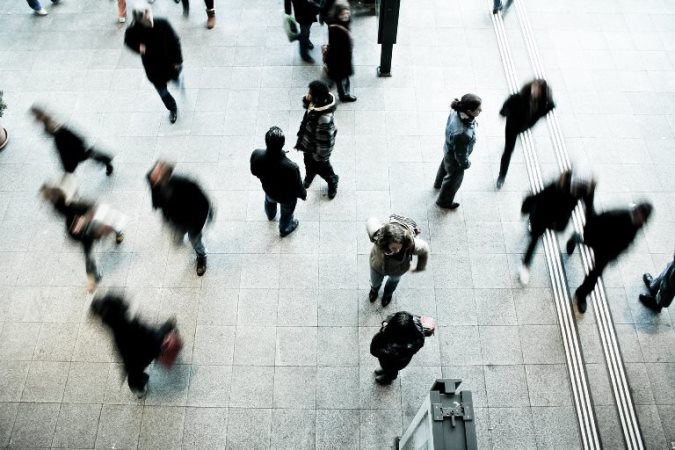The world’s population is self-isolating to fight coronavirus, but the danger of ideological isolationism is growing during this disorientating time. While we experience emotional and physical hardships, it might seem like an intellectual luxury to reject isolationism. But it is important to consider how to prevent the world succumbing to another storm of global and social polarisation in a few months’ time. Some scholars including Francis Fukuyama argue that the rise of identity politics was associated with the lingering consequences of the 2008 financial crisis. We must be aware of a similar potential social cost emerging from any economic crisis resulting from Covid-19.
Outright international isolation of ‘the others’ often leaves no winners in the long run. Yet this has often proved counterproductive, strengthening authoritarian rule through the targeted regime using the excuse of external pressure to bolster its legitimacy. Other forms of isolating the others are context-specific but also risk fuelling further nationalism. The example of Taiwan’s response to Covid-19 is a useful case study to examine this topic.
Inheriting decades of historical and geopolitical complexities across the Strait (the Strait indicates the Taiwan Strait, which geographically separates Taiwan and China. Cross-strait relations is often used to refer to Taiwan-China relations), it is an understatement that Taiwan is a victim of international isolation – excluded from official participation in most international organisations. Lately though, it has received much international media coverage for its swift intervention that has prevented a Covid-19 largescale outbreak on its soil so far. Writing from London, the unfortunate acceleration of coronavirus here has seen criticism aimed at slow responses from the UK government, in contrast to places where larger scale action has been taken early and quickly. The discussion of Taiwan’s timely response and innovative strategies has been overshadowed, however, by the recent row between WHO and Taiwan. Among all the analyses it is surprising that the structural factors underlying Taiwan’s success has been little discussed. Apart from the robust healthcare system and contingency plans, it is important to evaluate social structures, which might very well be the backbone that supported smooth interventions. Taiwan’s vertical division of authority power that runs well-into communities, stringing together small units of households might be one form of structural robustness allowing for fast policy response.
Putting this into perspective, I use a district in Taiwan’s capital Taipei, called Neihu, which has a similar population (over 285,000) to the borough of Southwark (over 314,000) in order to illustrate the notion and mechanism of community-level power. Neihu is further divided into 39 li (sub-units of an urban area), each li being chaired by a resident-elected minister. The 39 lis are units that supervise policy delivery both for the central government and the city level. They have played crucial roles in previous disease-prevention such as Dengue and SARS. Presently the UK’s insufficient response in contact tracing and testing within the community has been widely criticised. Conversely, the community level surveillance is precisely what is making disease-prevention efficient in Taiwan at the time of writing. This institutional structure is efficient as it complements the top-down approaches from the central government. Li ministers and their teams are usually senior residents who are familiar with the households and have built up strong relationships in the neighbourhoods over many years. Given this, the work of ‘li ministers’ is sometimes ridiculed as being merely involving ‘socialising’ and inviting local residents over for a cup of tea. Yet interestingly these small neighbourhood units might be the engines that help roll out disease preventions effectively. This process is more than just surveillance, and fits closer to self-mobilised collectivism. The message from this is that no overnight miracles enabled the effective action against Covid-19, rather it emerged from long-standing organisation within deep-routed social structures.
Recent political discourses within Taiwan, however, seem to credit Taiwan’s successful response to a confrontational mentality. Fearmongering about China has its unique context in Taiwanese society which might be useful in mobilising support to a certain extent, but how far could this ever contribute to a global response to Covid-19 when a coordinated international effort will be the only solution? We need political rhetoric balanced by evidence and scientific debates. Having been diverted for some time as politicians have exploited populism and identity politics, the recent return of evidence-based knowledge and reliance on experts is the light that cracks through darkness.
Therefore, analysing the success of Taiwan’s response so far is valuable in informing the global community, but it is important that the global community avoid simply using Taiwan’s story to satisfy anger towards China, where the outbreak originally began, thereby moving towards inciting a cold war type ideological race and zero sum conflicts.
Sadly, this is absolutely the backlash from global isolation – some Taiwanese politicians have exploited divisions with China in the current situation to enhance their credibility. This has resulted from the island being isolated for too long, now eager to share their experiences and speaking out on their manifold exclusions from the international community. Coincidentally this is occurring in an environment where US is turning inwards, countries are engaging international blame games and Sinophobic hate crimes are surging in the virus-torn West. The history of epidemiology reminds us that disease is global in nature, yet emerging narratives has sought to scapegoat China alone for Covid-19’s spread. This current phenomenon reveals the side-effects of international exclusion, with power to destabilise and further unleash isolationism.
Struggles that exist in the international relations realm do not have short term or easy solutions, but every one of us is responsible to help shape a post Covid-19 world. We endanger ourselves in risking the emergence of a more hostile and polarised society if we prefer the pursuit of lazy intellectual shortcuts blaming others over evidence-based and compassionate thinking. The outbreak of Covid-19 has shown limits and bureaucratic shortcomings in all types of polities, from authoritarian regimes to liberal democracies, and certainly exposed defects in large international organisations. To correct them, heightened conflict and inwardness is the least favourable scenario. Ideological isolation creeps in during fragile times, often disguised in forms of nationalism, antagonism or populism, even worse if these sentiments are endorsed by the state. Humanity must break the chain of isolation and return to reasonable policy debates.
Note: This article gives the views of the authors, and not the position of the Social Policy Blog, nor of the London School of Economics.






An excellent main point about longer term political impacts of Covid 19 with especial reflections upon Taiwan. The international comparisons do support a claim that all of East Asia has more or less generated success, particularly with regard to the lower mortality rate there than anywhere else. Even the US and Germany, much lauded as successes, do not match the best of the East Asia record in this regard, including the great case of Taiwan. And the argument of this blog – that we must not confuse the claim of success emerging from deliberately provoked conflict, from that of success coming from good policies, useful ground-level institutions, and early intervetions, – is made that much stronger when we acknowledge that Taiwan is more exemplary of East Asia than it is unique in the world. Over-egging the case may not aftually help with Taiwan’s overall global status, but in a rapidly changing world we can always hope.
Ian Inkster